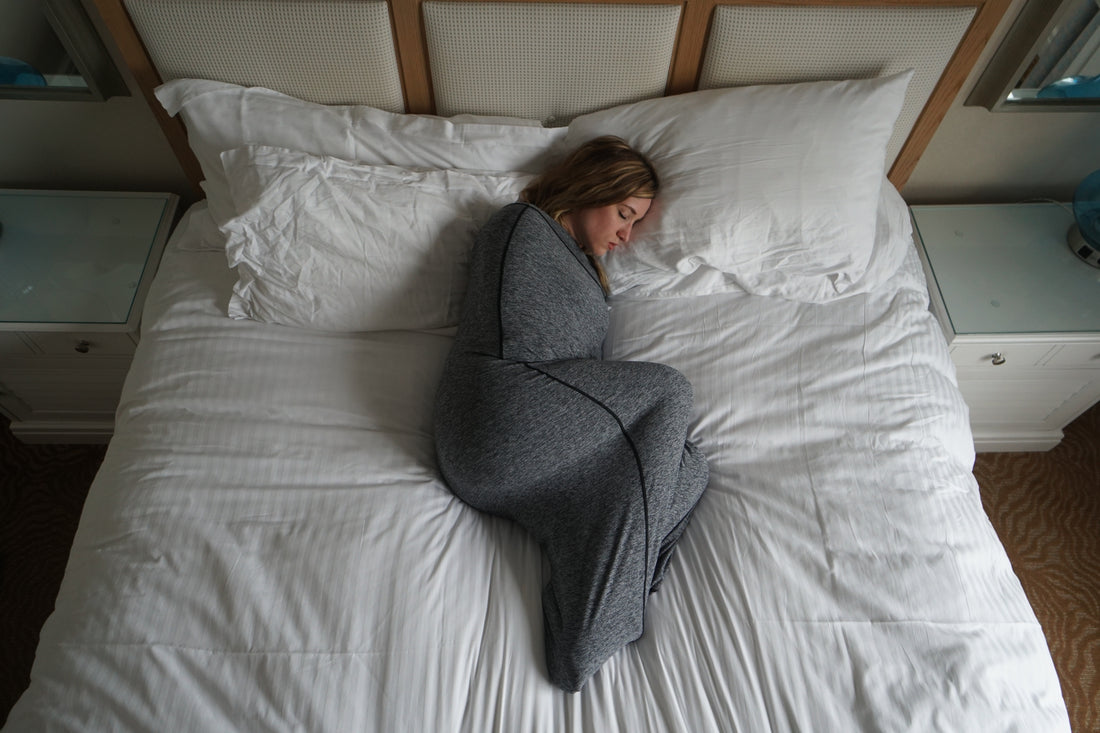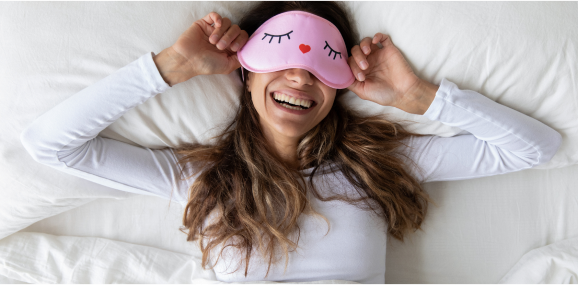An intense workout will leave you with tons of adrenaline, but also exhaustion. Recovery from exercise is an important part of the cycle of working out, as you have to give your body time to recover from previous workouts so that you are ready for your next workout.
Many personal trainers, and those who frequent the gym, will tell you that recovery is one of the most important parts of any training or exercise regimen.
Recovery allows for:
- Improved performance
- Time for the body to heal
- Decreased risk of injury
As you’re exercising, you’re technically creating damage to your muscles. It’s only during the recovery period that your muscles are able to repair the tiny tears that form during exercise. Without giving your muscles time to rest, you can risk serious injury to yourself.
Recovery is a culmination of many different factors, such as a good night of rest, nutrition, rehydration through water or power drinks, regeneration (also known as repair), resynthesis, reduction of swelling, and restoration that ultimately helps the body return to homeostasis.
Homeostasis is the state of balance within the body that occurs when the variables in a system are regulated to keep internal conditions stable and constant. These variables can include pH, temperature, and many others.
Thinking of recovery in three separate categories is helpful:
- Immediate recovery. This occurs in the short time between repetitions within a set of a specific exercise, like a set of bicep curls.
- Short-term recovery. This happens between sets, interval sprints, or weight training sets.
- Training recovery. This happens between workouts or competitions.
Recovery from exercise is most effectively executed with a healthy diet and a good night of sleep. Sleep is one of the most incredibly important elements of recovery from exercise, as getting enough rest each night helps your body repair itself.
In this article, we’ll discuss just how important sleep is and why you should make sure you’re incorporating good rest into your everyday routine — to understand that, it’s helpful to understand the different types of sleep you can experience.
Stages of Sleep
We spend a large portion of our days asleep, and it’s not just because it’s dark outside. Sleep has incredible health benefits, and our bodies require a certain amount of sleep in order to function.
Sleep can be split into two categories: REM and non-REM sleep. The night begins with non-REM sleep followed by a short period of REM sleep. Your body goes through these stages multiple times throughout the night, and in fact, there are multiple stages within non-REM sleep alone.
In the first stage of non-REM sleep, your body moves from being fully awake to falling asleep. In this stage, many things happen to your body, such as the slowing of your heartbeat, eye movements, brain waves, and breathing, along with muscles relaxing.
Stage two of non-REM sleep occurs next, and makes up for about 50 percent of the total sleep cycle. During this stage, your body’s core temperature drops, eye movements stop, and brain waves are slow (though there are still some short bursts of activity).
During stages three and four of non-REM, the heartbeat, breathing, and brain waves become the slowest that they will be during the night as the muscles fully relax. These stages are when it becomes increasingly difficult to awaken, and this is also when deep sleep occurs.
Deep sleep is also known as slow-wave sleep (SWS) or delta sleep. In the first half of the night, deep sleep will last for longer periods and then become shorter with each repeated sleep cycle.
After the last stages of non-REM sleep occur, your body enters into REM sleep.
In the first stage of REM sleep, the following things happen to your body:
- Eyes move rapidly from side to side
- Dreaming occurs due to the brain activity increasing to a more wakeful state
- Heart rate increases
- Breathing becomes faster, and even irregular at times
The Importance of Sleep for Muscle Recovery
REM sleep helps to provide energy and restoration to the brain so that it can be supported during waking hours. Non-REM sleep, better known as deep sleep, is essential for muscle recovery and restoring the body.
Deep sleep accounts for about 40% of total sleep time, and during this phase, your blood pressure drops and your breathing becomes slower. Your brain is able to rest with very little activity, which means that the blood supply available to your muscles increases, delivering more amounts of oxygen and necessary nutrients to facilitate healing and growth. Tissues and muscles are also able to be rejuvenated during this phase of sleep.
Sleep provides a crucial time for recovery. Without enough quality deep sleep, fundamental processes cannot occur.
Insufficient levels of sleep are likely to impair your body’s ability for recovery, and any of the following negative effects can occur due to lack of sleep:
- Reduced production of growth hormone, which is released when your body enters into deep sleep. This growth hormone, released by your pituitary gland, stimulates tissue growth and muscle repair.
- Increased cortisol, also known as the stress hormone, which can lead to a reduction of testosterone production as well as lowering muscle protein synthesis.
- Increased risk of injury due to decreased balance and postural control, which can lead to poor technique, decision making, and cognitive performance.
- Increased risk of infections and poor healing ability due to reduced immune system health.
A full night of sleep for adults could be seven to nine hours of sleep, which is important for exercise recovery. Sleep enhances muscle recovery through protein synthesis, as well as human growth hormone release.
It may seem counterintuitive, but taking the time to rest and get a good night of sleep (even if that means skipping your next workout) will positively impact your performance during your next workout. Exercising all the time and every day is not necessarily beneficial for your overall health, body composition, or efforts to try to put on body mass if you’re neglectingn other facets of health like sleep.
Tips for Getting Recovery-Level Sleep After Exercise
So, how can you work on making sure you’re getting enough sleep and recovering from your workouts?
There are many things you can do to make sure your body is being well taken care of during your recovery period.
Cool Down Routine
If you are someone who works out at night or after work, make sure you implement a cool-down routine. When you work out so close to bedtime, it can have negative impacts on how well you’re able to sleep or how fast you’re able to fall asleep.
After your workout, try out a few of these options so your exercise hormones, heart rate, and body temperature have time to come down.
- Take deep breaths in. This will help to deliver oxygen to your muscles, which helps release tension and promote relaxation.
- Stretching. Take some time to stretch out the muscles you just worked out — this will give your body a chance to decompress and your body to come down.
- Hydrate. Drink lots and lots of water so you don’t get dehydrated or become overheated.
Trying to go to sleep after an intense workout can be incredibly hard, but having a go-to cool-down routine can help promote better sleep.
Ice Bath
It might seem intense, but ice baths are known to help with recovery after a workout. They work to reduce swelling and improve recovery by changing the way blood and other fluids flow through your body.
When our bodies are exposed to cold water, our blood vessels constrict. When you get out of the bath, the blood vessels dilate, or open back up. This also helps to flush away metabolic waste post-workout.
After an ice bath, increased blood flow floods your cells with nutrients and oxygen to help your body recover. Just make sure not to use this method too often — it’s great once in a while but not regularly.
Hot Bath
Not into the whole ice bath thing? No worries— soaking in a nice, warm bath with bubbles, candles, and whatever else you’d like can be just as beneficial!
Heat can help increase blood flow, stimulate healing, and relax muscles. Relaxing muscles is an integral part of healing the tears that occur during workouts. Studies have shown that both heat and cold therapies can promote healing and prevent muscle damage following exercise.
Stretch, Stretch, Stretch!
Stretching after a workout is very important, but it’s just as important before bed, too.
Stretching keeps muscles flexible, strong, and healthy so that you’re able to keep sweating it out at the gym. Flexibility is essential to maintain range of motion in our joints. Without it, muscles shorten and become tight, which can lead to injury. When you exercise with tight muscles, they are weak and unable to extend fully, leading to an increased risk for strains and muscle fatigue.
Implementing a stretching routine after your workout, as well as before you go to bed, can greatly increase your ability to recover after exercise and get a good night of sleep.
Relaxation is Key
Relaxing is extremely hard for many of us. With so many things on the to-do list, chores to complete, kids to take to soccer games, and the everyday stressors of life, it can seem almost impossible to relax. But relaxation is possible, and finding what works for you can help improve your sleep significantly.
Try out any of the following at bedtime to reach peak relaxation:
- Read a good book. Reading is known to help in calming down and put the mind at ease as you slip into another world.
- Write it out. Journaling is a great habit to implement and helps with the reflection of self, keeping track of the days and important events, as well as writing the stressors of life out on paper is extremely therapeutic.
- Watch a movie or TV show. There’s nothing quite like curling up on the couch with a cup of (decaf) tea and watching your favorite movie or new TV series. Whether you do this by yourself and spend some quality time alone, or recharge on the couch with a partner or friend, don’t watch anything too crazy — you’re trying to relax, after all.
- Meditation. Taking the time to be still, center yourself, and take deep breaths is beneficial to not only your central nervous system but also your mind.
The Hug Sleep, Sleep Pod
This blanket was made to help you fall into sleep, stay asleep throughout the night, and wake up feeling rejuvenated.
Hug Sleep has designed a blanket with science in mind — the Sleep Pod. It was made with Deep Touch Pressure Therapy at the forefront or DTP, and it provides a gentle and calming pressure to the entire body to induce relaxation and comfort all night. DTP is a sensory tactile therapy that naturally induces relaxation through pressure — think of it like receiving the soothing benefits of a hug, all night long.
The unique cocoon-like shape covers the entire body and helps to reduce feelings of tension to get you ready for sleep with instant comfort and relaxation. The Sleep Pod is made from a specialized 4-way stretch material. The material is breathable, doesn’t trap heat, and is lightweight.
If you’re someone that struggles with getting a good night’s sleep and can see how it’s negatively impacting your workouts, try out this blanket and watch as your sleep nights transform for the better!
Sleep Towards Recovery
Without the needed rest and time off during sleep, our bodies wouldn’t be able to rejuvenate and repair themselves for the next workout ahead. Ensuring you’re sleeping enough will ultimately play a large role in your workout performance and what kind of results you see. Getting a good night’s rest doesn’t have to be hard, and once you find a strategy that works for you, you’ll have enough rest to help your body see you through that next workout!
Sources:
Why is recovery the most important part of your exercise regime? | Absolute Health Performance
15 Tips To Maximize Muscle Recovery: Tips, Complications, and More | Healthline
Exploring the Science of Muscle Recovery | NASM
Deep Sleep: Stages, Benefits, Requirements, Tips, and More | Healthline
Sleep Disorders and Sleep Deprivation: An Unmet Public Health Problem
The relationship and importance of sleep and Muscle Recovery. | SportsLab
Cooldown Exercises: 16 Ways to Cool Down with Instructions | Healthline
The Benefits of Ice Bath After Hard Workouts | Mens Health
Is Soaking in a Hot Tub Before or After Exercise Good for Sore Muscles? | Hot Spring

































500,000+ happy customers